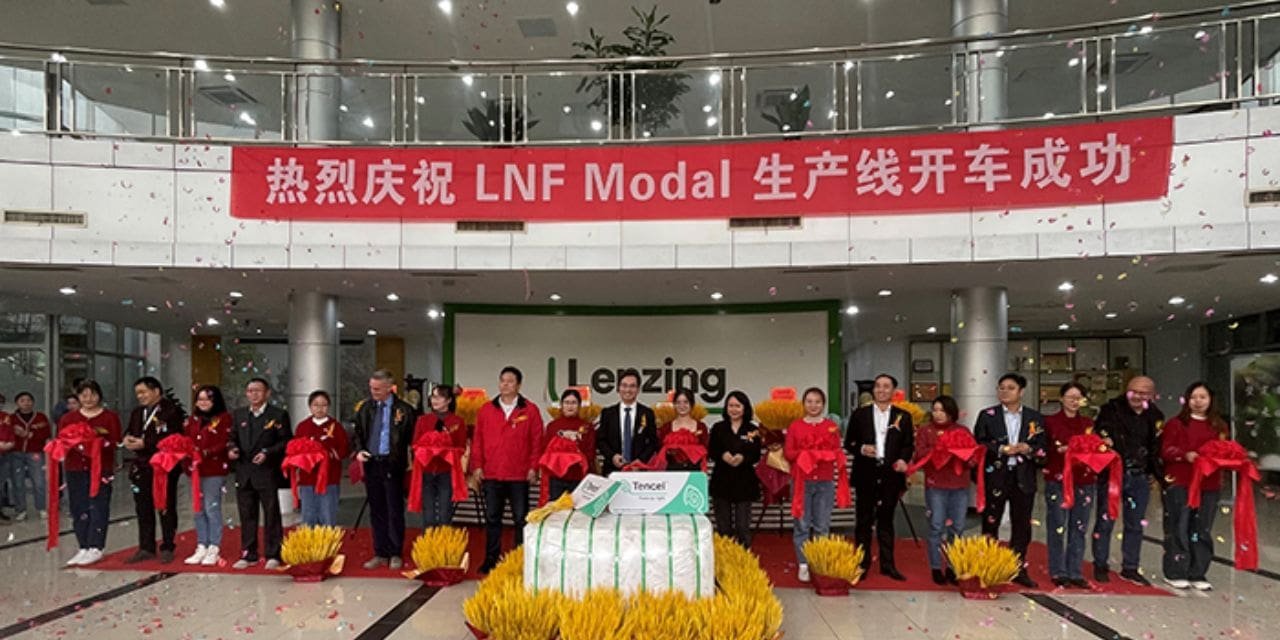The conversion of a production line from generic viscose to TENCELTM branded modal fibres for textiles and clothing has been successfully completed by The Lenzing Group, a global leader in the provision of speciality fibres for the textile and nonwoven industries. Lenzing is thus in a position to more swiftly fulfil the structural surge in demand by making domestically manufactured TENCEL fibres available to its Chinese clients for the first time. The fibre portfolio of the Chinese production site currently only consists of eco-friendly specialty fibres as a result of the conversion of the production line with a nameplate capacity of 35,000 tonnes per year. Additionally, Lenzing provides viscose eco fibres for nonwoven applications as well as fibres under the LENZING ECOVEROTM brand in China.
a party to mark the beginning of the new production On Tuesday, April 18, 2023, a customer event took occurred in line. Lenzing is spending 100 million euros to modernise the product line and cut carbon emissions at its Chinese facility. At its Chinese manufacturing facility, the company is in the process of making a progressive transition to green energy; starting in 2023, all of the electricity there will come from renewable sources. Lenzing set a goal for itself in 2019 to cut its particular carbon emissions in half by 2030 and achieve carbon neutrality by 2050. The Science Based Targets Initiative has approved its carbon reduction goal. As a result, Lenzing is the first manufacturer of cellulosic fibres in the world to have a climate aim that is acknowledged by science.
Our environmentally friendly speciality fibres are in high demand. We observe a massive growth especially in Asia, has potential. We are even better equipped to meet this expanding demand as a result of our investments in China and other Asian countries. Lenzing CEO Stephan Sielaff states, “At the same time, we are continuing to make significant progress towards attaining a carbon-neutral future and becoming a champion of circularity.
The most urgent issue of our time is man-made climate change. Due to its rapid fashion business model and rising use of fossil fuels in the production of textiles, the fashion industry still has a very detrimental influence on the environment. Customers of Lenzing, particularly brands and retailers, are using sustainably produced TENCEL speciality fibres to help them achieve their sustainability and climate goals

